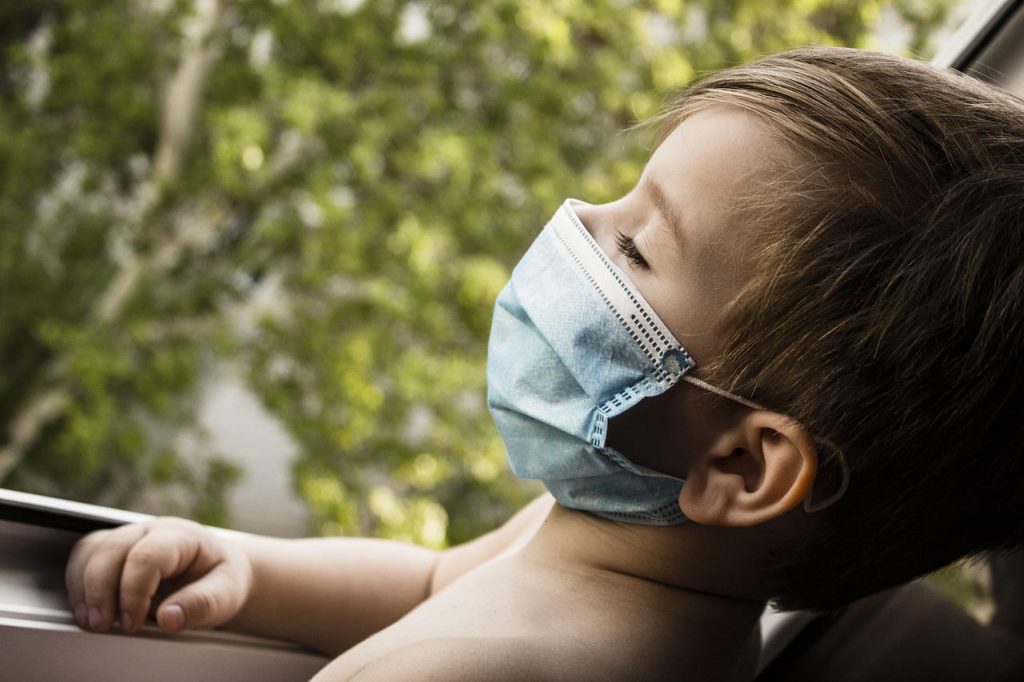
Parents are always looking for vitamins that are good for their kids. It is important to make sure that your children are getting the right vitamins and minerals in order to grow and stay healthy. There are many different vitamins that are good for kids, and each one serves a different purpose. And it is almost impossible to feed your kid various required fruits and vegetables a day. So, in that case, to make sure that your kid is getting vitamins and nutrients properly, you can go for the organic gummy vitamins supplements that are found on the market nowadays. In this article, we will discuss some of the best vitamins for kids and what they do. We will also provide information on the sources of vitamins and the amount of each vitamin that is required for the growth and development of your kid.
Different types of vitamins
If you are like most parents, you want to make sure your children are getting the best possible nutrition. This includes ensuring they are taking vitamins and minerals that support good health. Some vitamins help promote growth and development, while others help to maintain a healthy immune system. It is important for parents to know which vitamins are essential for their children and to make sure they are getting the appropriate amount in their diet. Here is a list of some of the most important vitamins for kids, along with explanations of what they do and why they’re important.
Vitamins A
Vitamins are essential nutrients that the body needs to perform optimally. Vitamin A is a nutrient that is important for vision, reproduction, and cell growth. There are thirteen different vitamins, and each one has unique benefits for the body. Vitamin A is one of the more important nutrients, and it offers a range of benefits including improved vision, stronger bones, and better immunity. Source of Vitamin A: This vitamin is found in many different foods, including fruits and vegetables, dairy products, and meat.
Daily intake amount: Daily 400 micrograms of vitamin A is required for your children’s proper development.
Vitamin B12
Among thirteen essential vitamins, vitamin B12 is one of the most important for children. Here are some reasons why your kid needs vitamin B12:
- It helps form red blood cells.
- It maintains a healthy nervous system.
- It also helps create DNA and is essential for proper brain function.
- Vitamin B12 supports energy production and metabolism.
Source of Vitamin B12: It is important to make sure your child gets enough of this crucial vitamin by adding foods like beef, fish, poultry, eggs, milk, and cheese to their diet, or by taking a supplement if needed.
Daily intake amount: 1.2 micrograms of Vitamin B12 daily.
Vitamin C
The benefits of vitamins are vast and well-known. Vitamin C is important for your kid as it helps in the development and maintenance of bones, cartilage, teeth, and gums. Vitamin C is also essential for wound healing. A disease called scurvy is caused by a lack of vitamin C .
Sources of Vitamin C: Foods that are high in vitamin C include citrus fruits, tomatoes, broccoli, and strawberries.
Daily intake amount: Kids need about 75 mg of vitamin C per day.
Vitamin D
Vitamin D is one of the essential vitamins that helps the body absorb calcium and phosphorus from food, which is essential for building strong bones and teeth. A deficiency in vitamin D can lead to a weakened immune system, poor growth, and even rickets (a bone disease caused by lack of vitamin D).
Sources of Vitamin D: Luckily, getting enough vitamin D is easy – your child can get it from sun exposure, foods fortified with vitamin D, liver, red meat, or supplements.
Daily intake amount: daily 800 milligrams of vitamin D is required for your kid’s body function to work properly.
Vitamin K
It is very important for every parent to ensure that their children get all the essential vitamins and minerals needed for their growth and development. One such vitamin that is often overlooked is Vitamin K. Here are some of the top reasons you should make sure your child gets enough Vitamin K:
1) It helps support healthy bones – One of the main roles of Vitamin K is to help with calcium absorption, which is important for developing strong bones.
2) It aids in wound healing – If your child sustains a cut or scrape, Vitamin K may help them heal faster. It also helps with blood clotting action.
3) It supports cardiovascular health – Studies have shown that Vitamin K can help decrease the risk of cardiovascular disease.
Sources of Vitamin K: There are many sources of Vitamin K. The most common source is leafy green vegetables. Other sources include certain fruits, dairy products, and meat products. Each of these sources provides different levels of Vitamin K. Knowing which foods provide the most Vitamin K can help you ensure that you are getting enough of this important nutrient.
Daily intake amount: Per day 55 micrograms of Vitamin K is required for your kid.
Vitamins are important for kids and they should continue to receive their recommended dosages. While it is always best to get nutrients from food, there may be times when a vitamin supplement is necessary. Speak with your pediatrician if you have any questions or concerns about your child’s nutrition and health.



